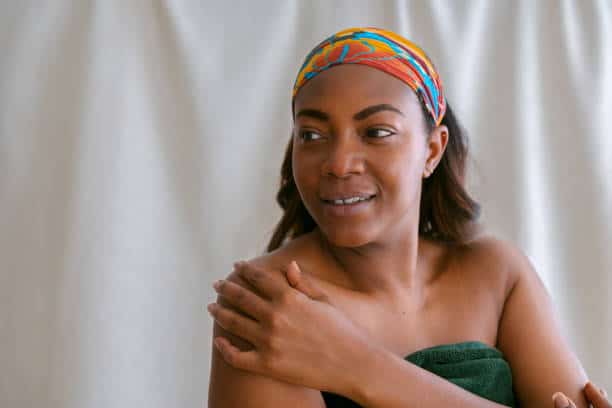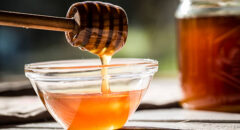
More commonly known as ‘acne inversa’, Hidradenitis Suppurativa (HS) is a chronic progressive skin disorder resulting from inflamed and infected sweat glands. The condition manifests as lesions or lumps in areas of the body where chafing may occur, such as underarms, groin, and buttocks. These boils, ranging in size from a pea to a marble, may enlarge to require lancing and draining and can become quite painful if left untreated.
Though prescribed treatments are available, there is currently no cure for HS. There is also no clear cause for the disease, though more recent studies have suggested that it disproportionately affects the Black community, women especially, despite this demographic being underrepresented in the studies themselves. The field of dermatology is sadly still lacking ethnic diversity as well.
Currently available treatments, including corticosteroid injections, hormone therapy, and surgery can help the sufferer manage the symptoms better. Temporary relief does not guarantee that the boils won’t return, but some treatments can improve your quality of life enough to maintain confidence and keep you connected to the community.
If you have been diagnosed with HS, it’s important to remember that it’s not contagious, not a reflection of poor hygiene, and it does not only affect the overweight population. Increased risk factors for Black women include having a relative with HS, smoking, and already present autoimmune disorders that may trigger the condition.
Because the onset of HS starts around puberty, it may be perceived at first as cystic acne, which is why some experience delays in treatment, or even misdiagnosis. The most apparent difference between acne and HS is that HS recurs in the same areas and does not respond consistently, if at all, to over-the-counter medication.
RELATED: 8 Surprising Things Making Your Hidradenitis Suppurativa Worse
The American Academy of Dermatology Association recommends the following for daily care and maintenance of HS:
Antimicrobial face wash: Look for a face wash that contains benzoyl peroxide or zinc pyrithione, as both are active ingredients that help reduce inflammation and slow future flare-ups.
No more scrubbing: Throw out the exfoliators, doctor’s orders. Scrubbing leads to further inflammation, which you’re trying to avoid.
Avoid waxing: If you absolutely must shave, do so carefully. Waxing will cause further irritation and undo all of your hard work.
Heat compress: Either a warm black tea or warm water compress for 10 minutes several times daily brings relief by reducing pain and helping drain painful boils.
Mild deodorant: Having HS means having extra sensitive skin, which means no alcohol, baking soda, dyes, or perfumes added to the deodorant you wear.
Looser clothing also helps by reducing chafing, leading to less irritation. Talk to your doctor about having a wound-care routine in place, depending on how the condition is progressing.
Despite the lack of available research and studies to help Black Americans better manage their HS diagnoses, there are ways the community comes together to fill the resource gaps and uplift HS patients however possible.
RELATED: Q&A: Are There Natural Remedies For Hidradenitis Suppurativa?
The HS Foundation is led by physicians to serve physicians and patients by providing articles and updated lists of HS specialists by state. Thankfully, there is also a link to find trials to participate in that will only increase the knowledge and scope of treatment approaches available for Black HS patients.
Hope for HS is a support organization and group directory that is completely volunteer-led, with online meetings available for those who lack transportation or other mobility access.
Skin of Color Society has a list of skin care centers across the United States that help treat BIPOC patients with skin disorders. It also includes events and mentorship programs for HS sufferers.
It’s important to always reach out and find your community to stay connected, especially when living with an isolating condition.








